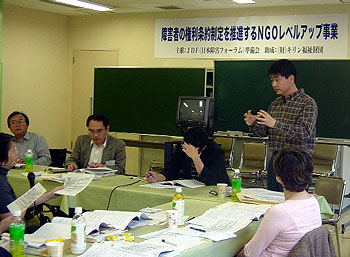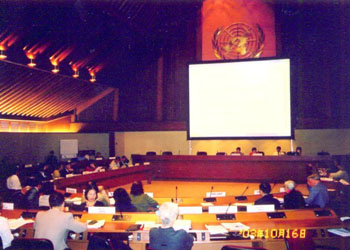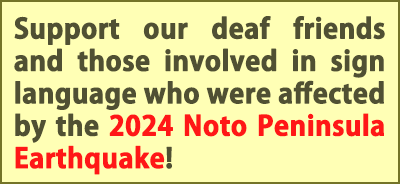By Eiichi Takada – August 25, 2004
(English translation based on an article which appeared in the Oct. 25, 2004 edition of the Yomiuri Shimbun Newspaper)
The United Nations Ad Hoc Committee on a “Comprehensive and Integral International Convention on Protection and Promotion of the Rights and Dignity of Persons with Disabilities” is now in the process of discussing the contents of the convention. The Fourth Session of the Ad Hoc Committee, held from August 23 to September 3, was attended, not only by the Japanese government delegation, but also by a delegation of Japanese disability-related NGOs.
As the common desire of all the Deaf persons or persons with profound hearing disabilities throughout the world, the Deaf community is now focusing on the need to define sign languages as full-fledged languages.
It is true that sign language is becoming better understood by society at large, and people no longer look at us with curiosity when we are signing in public. Sign language often appears even in TV dramas. Most people, however, mistakenly believe that sign language is an alternative form of expressing spoken languages. Sign languages are still discriminated in that they are not recognized to be languages, equal to spoken languages.




